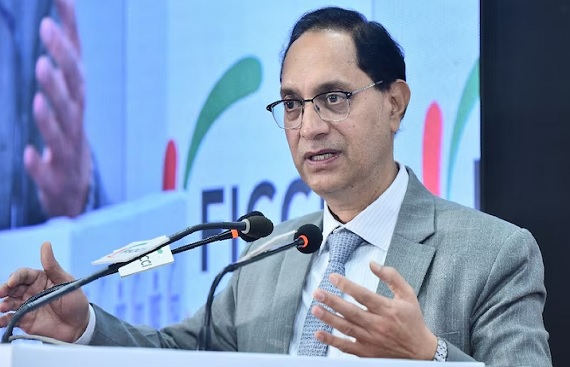Tax Reforms Highlighted in Union Budget 2025-26: Tuhin Kanta Pandey
By
siliconindia | Tuesday, 04 February 2025, 12:55 Hrs

In a recent address at the ASSOCHAM post-budget conference, Finance Secretary Tuhin Kanta Pandey emphasized that tax reforms were a pivotal feature of the Union Budget 2025-26, underscoring their far-reaching impact on the entire economy. For the first time, these reforms have been included in Part-A of the budget, signaling their significance.
Pandey observed, "High taxation is counterproductive, and we have not gone for new tax measures. Our direction is to broaden the tax net, expand the economy, and naturally, taxes will flow." He pointed out that in the last three years, personal income tax had seen a growth of 20-25%. While he vehemently advocated that this rise has yet not burdened the same taxpayer further. The focus, according to Pandey, is on creating a wider avenue for income generation and fostering an environment of voluntary compliance.
He further noted that budget making is a process of reconciling various priorities and is not a segmented exercise. "It's about creating a sustainable framework for long-term growth", he noted. Pandey also talked about the launch of Bharat Trade Net in the budget that is going to connect all the stakeholders and ease out the customs process. He said that this is an initiative that can transform like the UPI system.
There is no question now of merely following standards. Our GST concept is unparalleled across the world, and rightly so, we are proud of the success story of the system, added Pandey while emphasizing India's leadership role in reforms related to tax.
Ravi Agrawal, Chairman of the Central Board of Direct Taxes (CBDT), echoed Pandey's thoughts while explaining the shift in the Tax Department's approach. "The guiding philosophy has evolved", Agrawal said. "It's no longer just about collecting taxes. Taxes are derived from income generation, and as the income grows, taxes naturally follow". Agrawal pointed out that amendments to the Direct Tax Act, changes in tax slabs, and rebates have been designed with this philosophy in mind.
The CBDT chairman also spoke about other major reforms such as rationalising TDS and TCS provisions. "We are decriminalizing these provisions, and the concept of updated returns introduced in the budget is a step towards making the tax system more user-friendly and transparent", he said. These are aimed at improving ease of doing business, simplifying compliance, and reducing taxpayer burden.
Sanjay Kumar Agarwal, Chairman of the Central Board of Indirect Taxes & Customs (CBIC), cited the rationalization of customs duty rates as a major reform in the budget. "We have revised rates for 8,500 out of 12,500 tariff lines related to industrial goods. The rates for agriculture goods and textiles remain unchanged due to their sensitive nature", Agarwal stated. The earlier customs duty rates, which remained unchanged for nearly two decades, were felt to be very high. The revised rates ranging from 70% to 20% are expected to reduce the burden on the businesses. To maintain the overall duty structure and absorb the impact gradually, the government has also introduced an equivalent EIDC (Education and Infrastructure Cess).
In the welcome address, Manish Singhal, Secretary General of ASSOCHAM, praised the government for aligning the Union Budget 2025-26 with public expectations while maintaining fiscal prudence. He highlighted the significant tax relief offered to the middle class, which is anticipated to boost economic growth by encouraging savings and consumption. Singhal further mentioned that the government was committed to making it an easy business place through ease-of-doing business initiatives and steps to eliminate financial regulations. All these steps would lead to continuous business expansion and economic development as a whole, he said.
On the whole, these tax reforms that Budget 2025-26 has ushered in can be considered as efforts towards a simple tax structure with increased compliance, long-term growth in the economy, and also towards an increased tax base without burdening the taxpayer and thus building a system that is fair, transparent, and efficient for the future.
